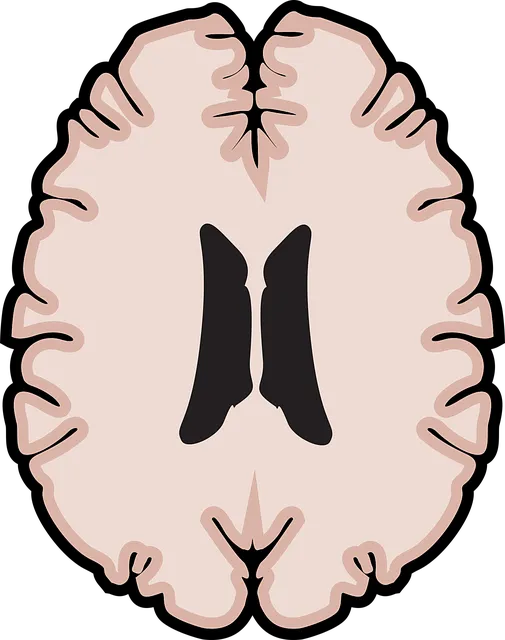Cultural sensitivity is a cornerstone of effective mental healthcare at Kaiser Permanente's Lone Tree appointment center, addressing disparities faced by diverse communities. By recognizing unique cultural lenses and implementing tailored strategies like mindfulness meditation, professionals create inclusive environments that improve client safety, satisfaction, and outcomes. Tailored programs aimed at stress reduction, journaling, and self-care enhance mental wellness journeys for all individuals, regardless of identity or background.
Cultural sensitivity is a cornerstone of effective mental healthcare, especially as our society becomes increasingly diverse. This article explores the vital role of cultural competence in addressing the unique needs of various communities, with a focus on best practices and success stories. We delve into the challenges faced by minority groups in accessing quality care and present Kaiser Permanente’s Lone Tree Mental Health Appointment Center as a model for inclusive services. By examining strategies like team training, cultural assessments, and tailored treatment plans, we aim to enhance mental healthcare accessibility and outcomes for all.
- Understanding Cultural Diversity in Mental Healthcare
- – Exploring the importance of cultural sensitivity in mental health practice
- – Statistics on diverse populations and their mental healthcare needs
Understanding Cultural Diversity in Mental Healthcare

In the diverse landscape of mental healthcare, recognizing and embracing cultural sensitivity is paramount, especially at centers like Kaiser Permanente’s Lone Tree mental health appointment center. Understanding that each individual enters therapy with a unique cultural lens shapes effective treatment strategies. Cultural diversity encompasses not just ethnicity but also religion, gender identity, sexual orientation, socioeconomic status, and more, all of which can influence an individual’s experiences and perceptions of mental health and well-being. For instance, what constitutes appropriate communication and boundaries in one culture might differ significantly in another.
Navigating these differences requires mental health professionals to conduct thorough risk assessments (a key aspect for their own safety as well as that of clients) and employ burnout prevention strategies, such as self-care practices, to maintain resilience. By integrating cultural competence into clinical practice, healthcare providers can create a safe space where clients feel understood and supported, fostering open dialogue and ultimately enhancing outcomes. This approach not only respects the diversity of the community served, like those in Kaiser Permanente’s Lone Tree service area, but also promotes positive mental health outcomes for all individuals seeking care.
– Exploring the importance of cultural sensitivity in mental health practice

Cultural sensitivity is a cornerstone of quality care at Kaiser Permanente mental health appointment centers, such as the one located in Lone Tree. In today’s diverse society, it’s crucial for mental health professionals to understand and appreciate the unique cultural backgrounds, beliefs, and practices of their clients. This understanding fosters an environment where individuals from all walks of life feel seen, heard, and respected during their mental wellness journeys. By integrating mindfulness meditation techniques, which have been shown to enhance Mental Health Awareness, practitioners can create a safe space that promotes open communication.
Recognizing the importance of cultural sensitivity goes beyond mere inclusivity; it ensures effective treatment tailored to individual needs. Whether navigating complex issues related to identity, immigration status, or specific cultural practices, a culturally competent approach can significantly impact the outcome of mental health interventions. This is especially relevant for organizations like Kaiser Permanente, aiming to provide comprehensive care that aligns with the diverse communities they serve, including Lone Tree and beyond.
– Statistics on diverse populations and their mental healthcare needs

In addressing mental healthcare needs across diverse populations, it’s crucial to look at the unique challenges and cultural sensitivities within each community. According to recent data, certain ethnic and cultural groups in the United States face significant disparities in accessing quality mental health services. For instance, studies show that while white individuals are more likely to seek professional help for their mental health issues, Black, Indigenous, and people of color (BIPOC) often encounter barriers such as a lack of culturally competent care, insurance coverage challenges, and historical trauma that hinder their ability to receive the support they need.
Taking the example of Kaiser Permanente’s mental health appointment center in Lone Tree, these statistics underscore the importance of tailoring services to meet the specific needs of diverse populations. By offering tailored programs like Stress Reduction Methods, Mental Wellness Journaling Exercise Guidance, and Self-Care Practices, such centers can foster inclusivity and improve outcomes for all individuals, regardless of their cultural or ethnic background.
Cultural sensitivity is a cornerstone of effective mental healthcare, especially in diverse communities like those served by the Kaiser Permanente mental health appointment center in Lone Tree. By recognizing and respecting the unique cultural contexts and beliefs of patients, mental health professionals can provide more personalized and accessible care. Addressing cultural disparities in mental healthcare is not just beneficial but essential for improving outcomes and fostering a supportive environment for all individuals, regardless of their background.






